The Independent's journalism is supported by our readers. When you purchase through links on our site, we may earn commission.
2017 in cookbooks: From The Palestinian Table to Salt, Fat, Acid, Heat
Julia Platt Leonard rounds up her favourite cookbooks from this past year

“A table is more than a piece of furniture, just as food is more than fuel.” The table is at the heart of Nigella Lawson’s latest, At My Table: A celebration of home cooking. No one is better at reminding us that cooking is about eating and eating is about sharing.
To prove the point – if proof were needed – are recipes that cry out to be made, shared and savoured.
There’s not an off one in the bunch with a generous third dedicated to sweets, from a heady chocolate cake with coffee buttercream to her how-did-we-live-without it emergency brownies.
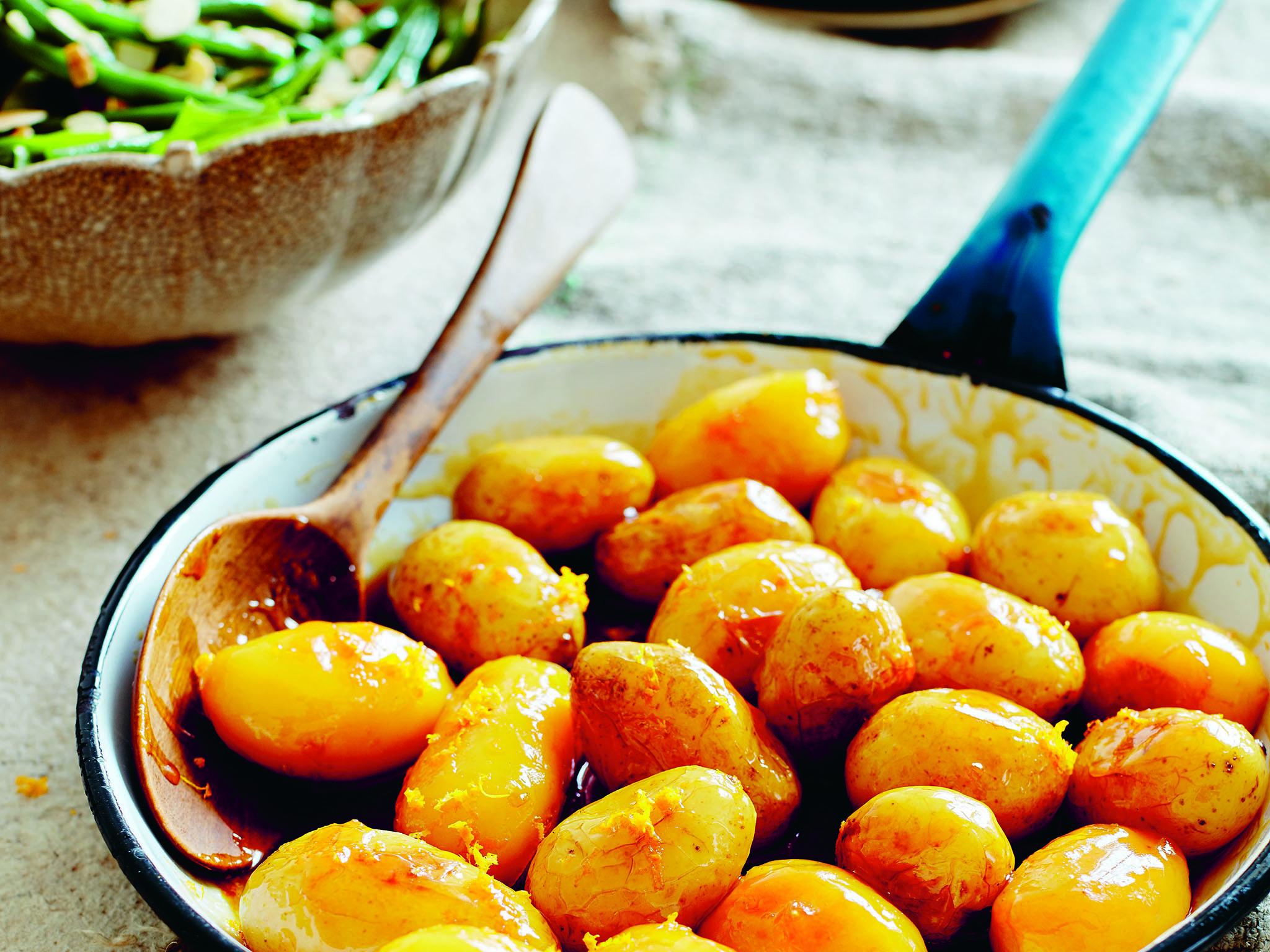
Ease of preparation is a plus with no-churn ice creams, potato waffles made from leftover mash, and all-in-one dishes like her Indian-spiced chicken and potato traybake. A classic.
Cookbooks published early in the year often get nudged off the shelf (and Christmas wishlists) by later arrivals. This shouldn’t be the case with Catherine Phipps’ Citrus.
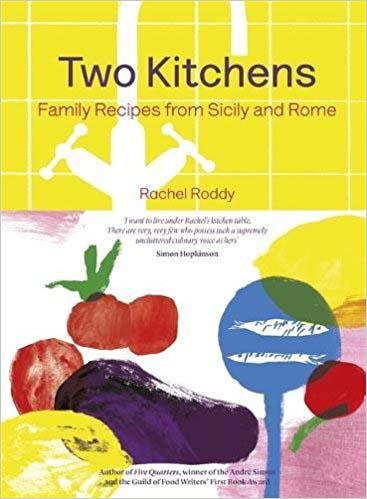
Recipes like marinated chicken with charred limes, saffron butter and soft flatbreads; blood orange and rhubarb meringue pie; and a heady gin and bitter grapefruit granita make the case for citrus – the essential sour and the sweet – in cooking.
No one writes with more love for her subject than does Rachel Roddy in Two Kitchens: Family Recipes from Sicily and Rome. Her joy of the food of Sicily is palpable: “Figs that taste like honey”, aubergines “pendulous and black as night” and “onions the size of frisbees”.
But, this is a place of grit, not glamour. (Her partner Vicenzo’s grandparents’ home in Gela on the south coast of Sicily, is in an industrial area, dominated by an ugly oil refinery.) Yet the food and the stories hold a special beauty from the omnipresent cassata (a Sicilian staple of layered sponge, ricotta and marzipan) to sardines stuffed like little birds, redolent of the sea, citrus, and bay.
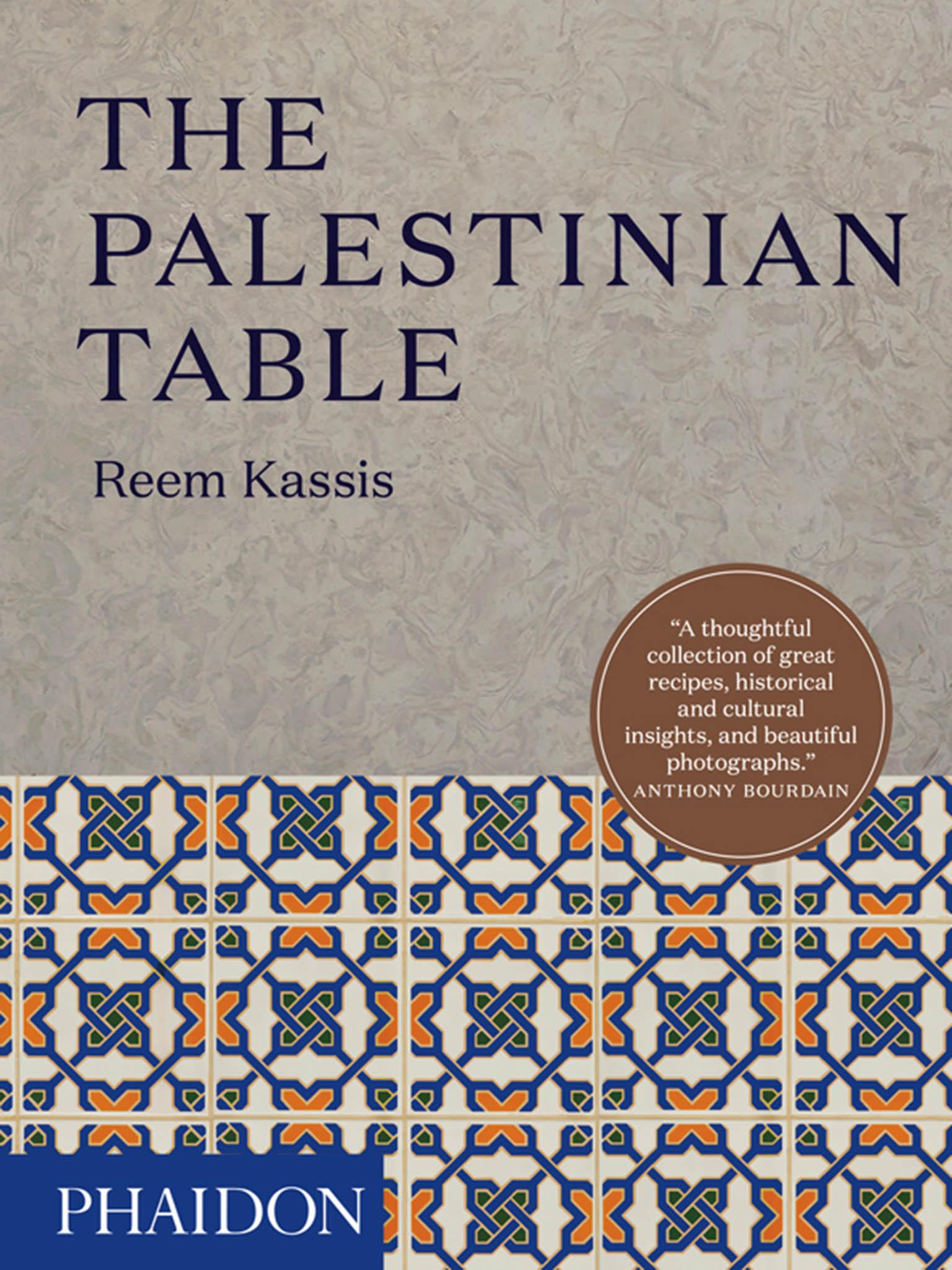
Born in Jerusalem to a Palestinian family, Reem Kassis grew up in the kitchen surrounded by strong women who taught her how to cook. In The Palestinian Table she shares their recipes from the simplest tahini sauce (with a dollop of yoghurt to cut through the richness), to chicken, onion and sumac flatbread, inspired by her formidable grandmother, Teta Fatmeh.
A kafta and tahini bake marries rich meat with crisp potatoes, lifted by a sharp tahini sauce. (“Ask any Palestinian woman about this dish and she will likely tell you it’s a dish she makes when she’s tight on time…”).
Childhood memories, nostalgia and strong women figure too in Olia Hercules’ stunning second book, Kaukasis. Hercules is a natural storyteller as well as an accomplished cook, and Kaukasis is peppered with the people and places of Armenia, Azerbaijan, Georgia, and beyond.
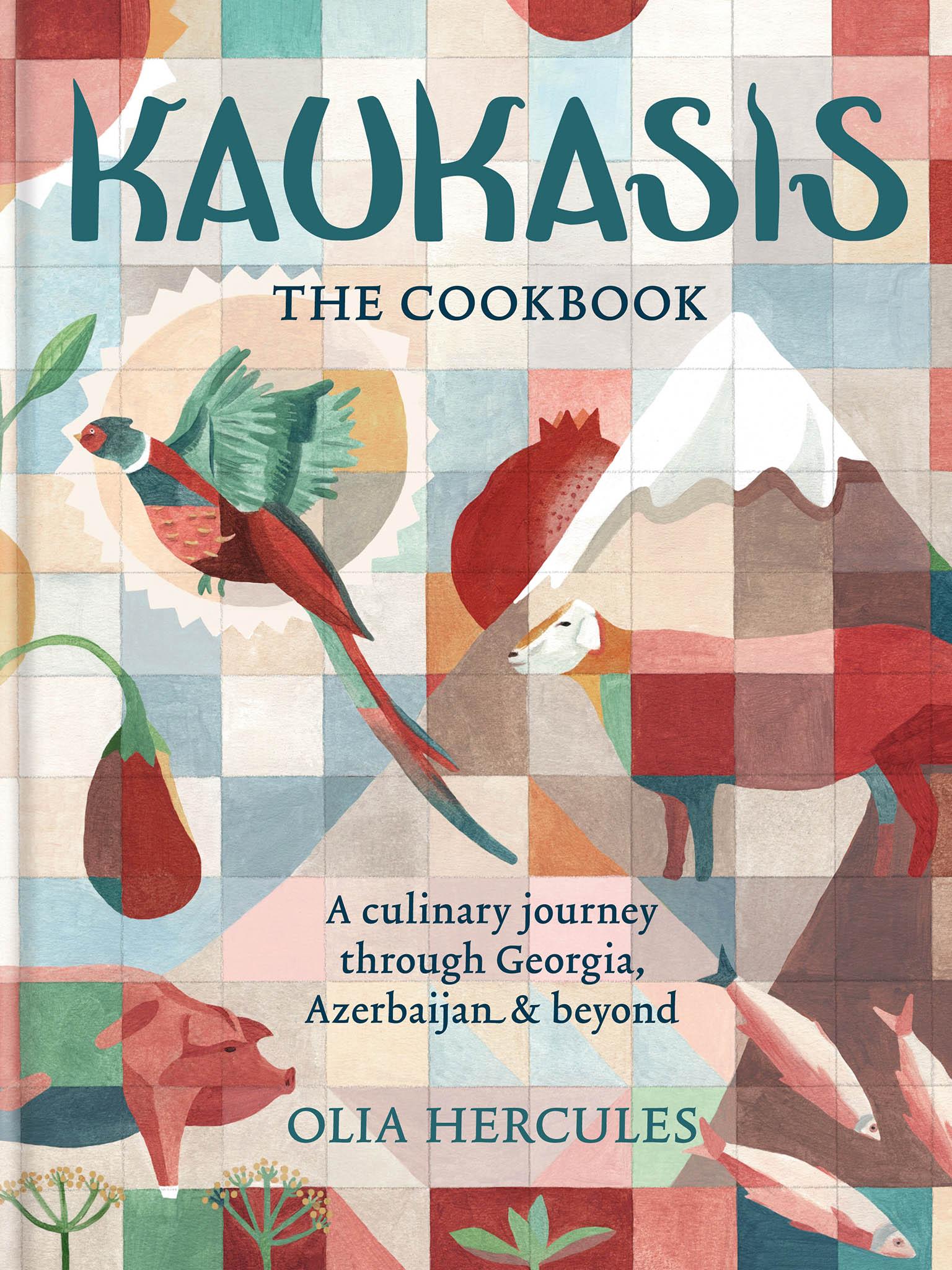
Women like la, a head teacher from western Georgia with “a penchant for etymology, thin cigarettes and coffee.” Try Hercules’ buttery saffron plov, studded with sultanas, apricots, barberries and nuts, or a spicy, salty, rich ostriy (the Russian word for “spicy”) – beef ribs cooked in a red chilli-spiked sauce.
Feasts is Sabrina Ghayour’s third – and arguably her best – cookbook. It plays to her love of cooking for crowds, which she honed running a highly successful supper club.
Feasts is helpfully divided by occasion such as breakfast and brunch, weekend feasts, and special occasions but Ghayour is the first to encourage mixing and matching and substituting ingredients freely. The result is a stress-free approach to cooking with big flavours and minimal fuss.
Fig and rose millefeuille would dazzle the most jaded dinner party guests while butterflied leg of lamb with pomegranate salsa could be the new go-to Sunday roast.

In a world of door stopper sized cookbooks, The Sunday Night Book by Rosie Sykes is a wee slip of a thing and all the better for it. The premise is simple: 52 short recipes to help you carve back Sunday nights from the relentless march to Monday. Expect eggs, toast and pasta but in unexpected guises – comfort food at its best.
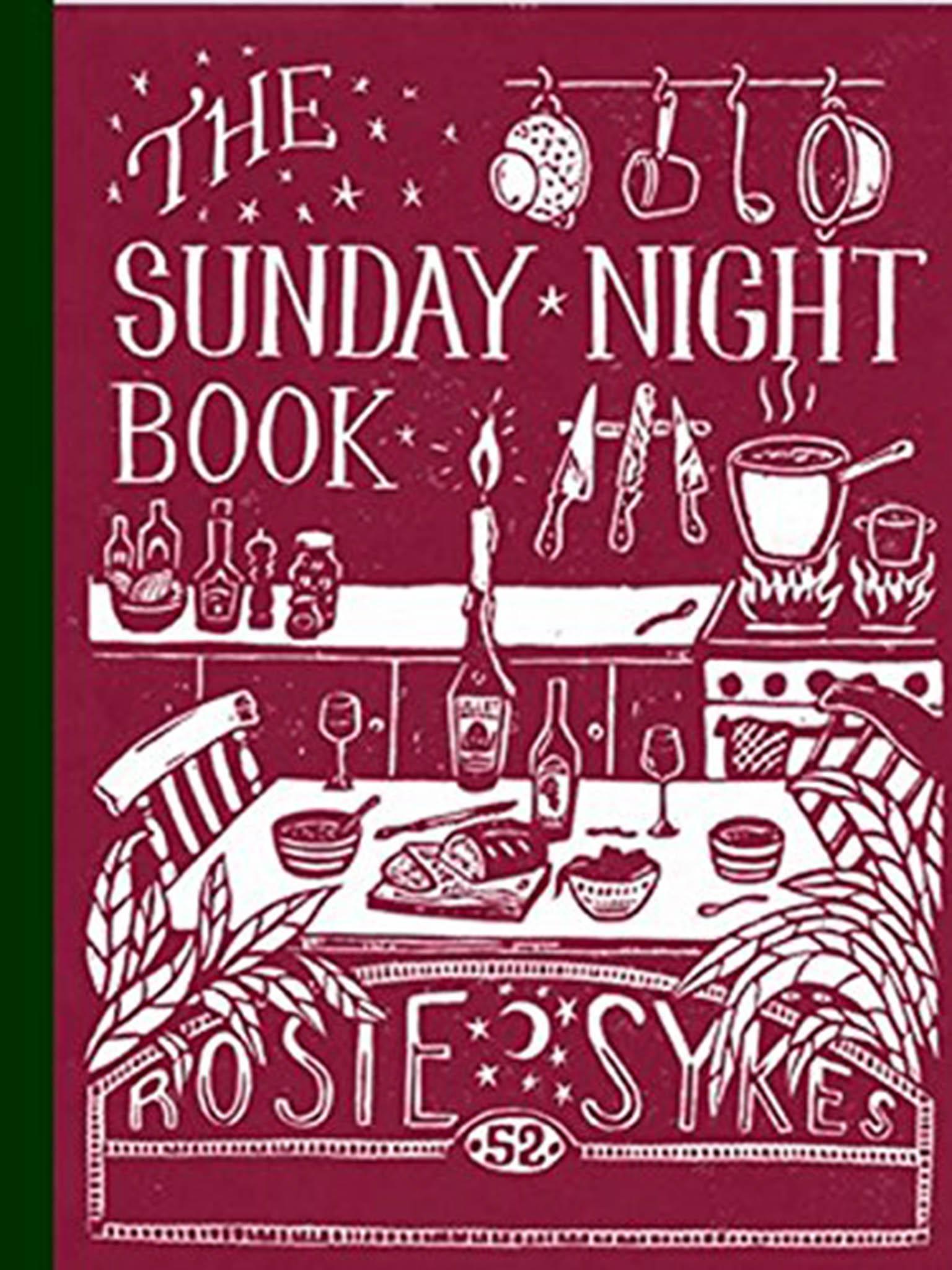
Sykes has worked with some of the top names in British food including Joyce Molyneaux, Shaun Hill and Margot Henderson, and her culinary pedigree shows in recipes that surprise delight and should keep Monday at bay for at least a few hours longer.
Samin Nosrat’s Salt, Fat, Acid, Heat is a masterclass in how to cook by understanding how these four basic – yet fundamental –elements work in cooking. Nosrat does an impressive job of distilling complex theories into practical culinary strategies. The first part dedicates a section to each element while part two takes the theory and puts it into practice with recipes, cooking lessons and suggested menus.
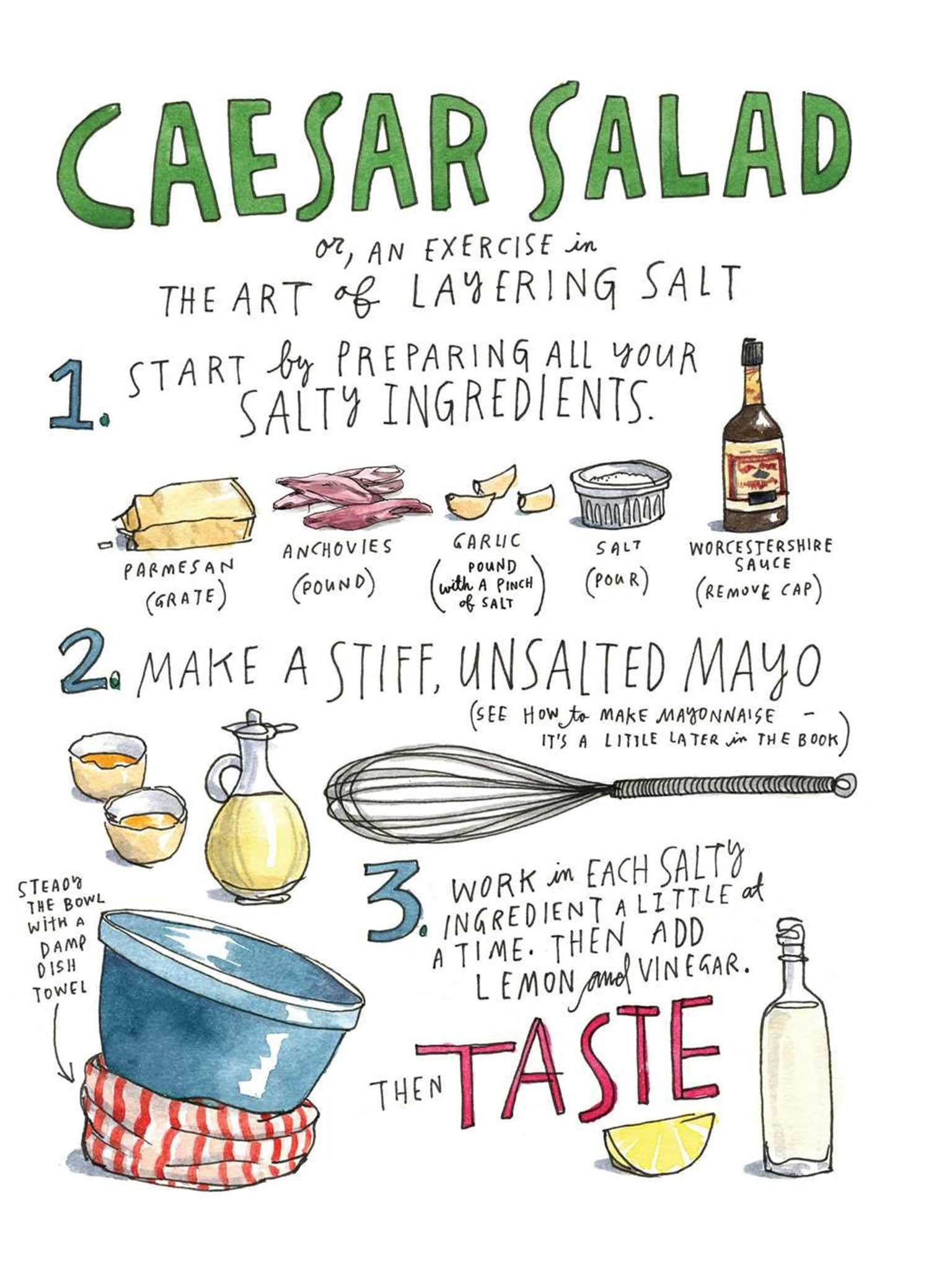
Photos have thankfully been dismissed in favour of lovely colour illustrations that bring the principles to life. Perfect for the nervous novice but if you’re a confident cook, expect to pick up tips to up your culinary game.
“Three things I find offensive – mean men, back-bitin’ women, and sloppy cookin’,” are the words of Pamela Strobel, aka Princess Pamela, chef/hostess/owner of a tiny restaurant – more of a speakeasy – that first opened in 1965 in New York City’s East Village.
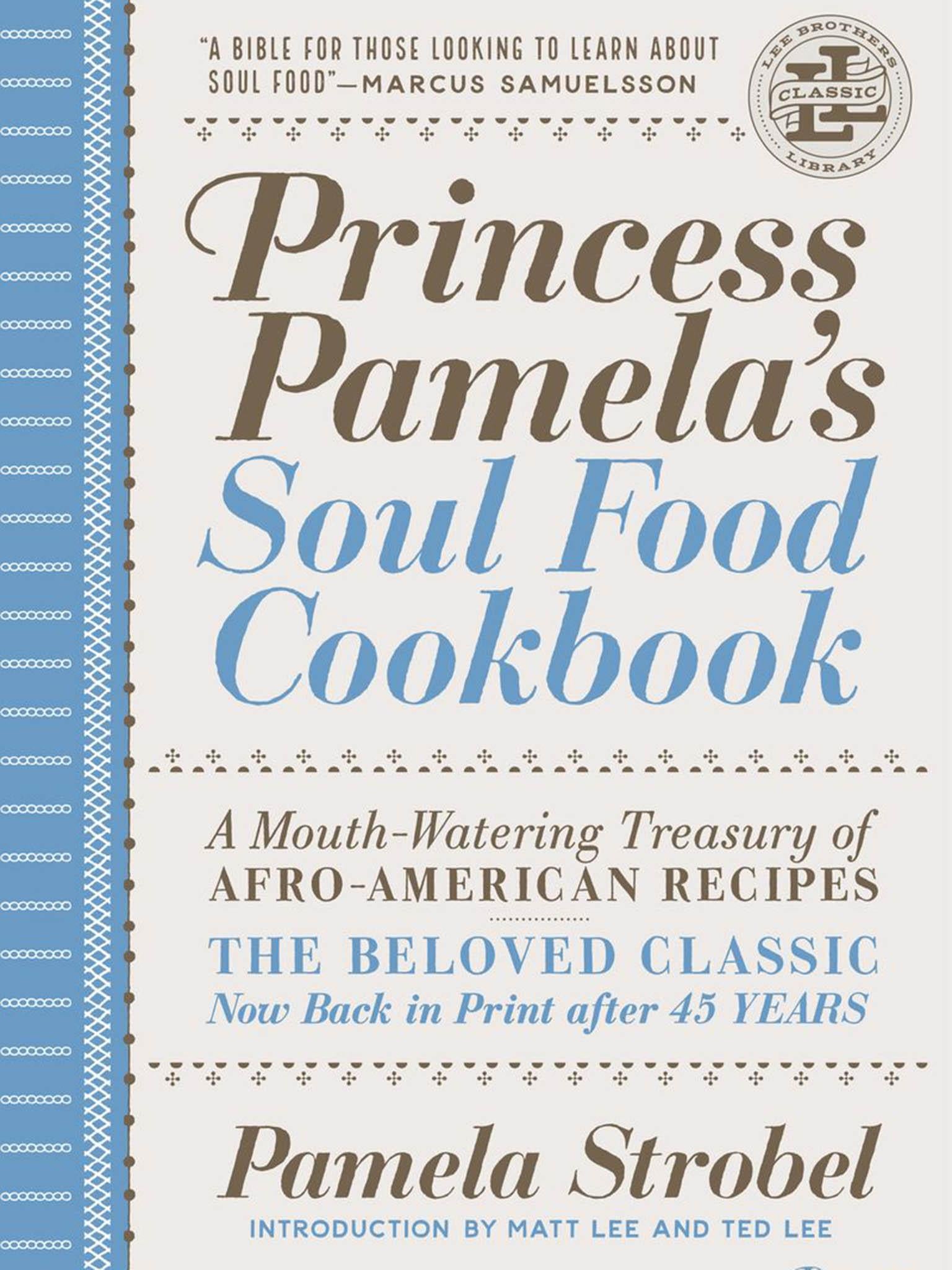
Princess Pamela’s Soul Food Cookbook is a collection of her Afro-American recipes. Published 45 years ago, it fell out of print but thankfully was discovered by food writers Matt and Ted Lee.
The recipes are terse but tasty for dishes like smothered pork chops (“Smother a po’k chop like you would a lovin’ man”), sweet potato biscuits, and okra fritters.
Sadly, no one knows what became of Princess Pamela after her restaurant closed in 1998 but thankfully her recipes and words live on. “I figure I got a right to the Princess title, ‘cause Lord knows I been crowned more than one time.”
Join our commenting forum
Join thought-provoking conversations, follow other Independent readers and see their replies
Comments
Bookmark popover
Removed from bookmarks